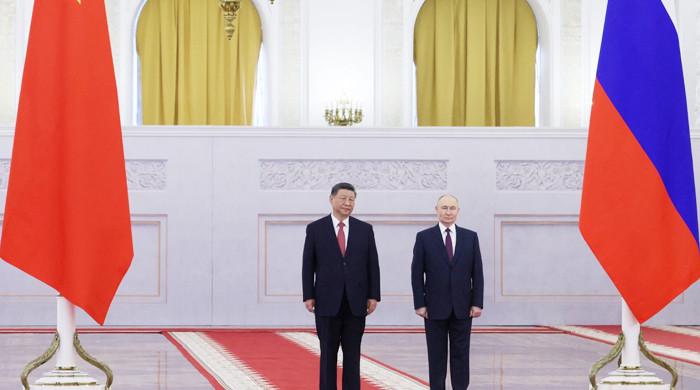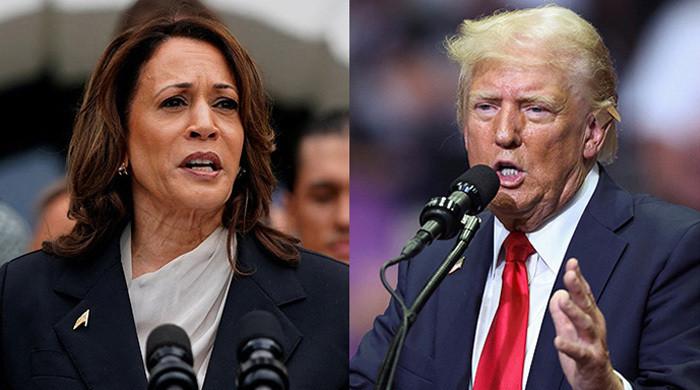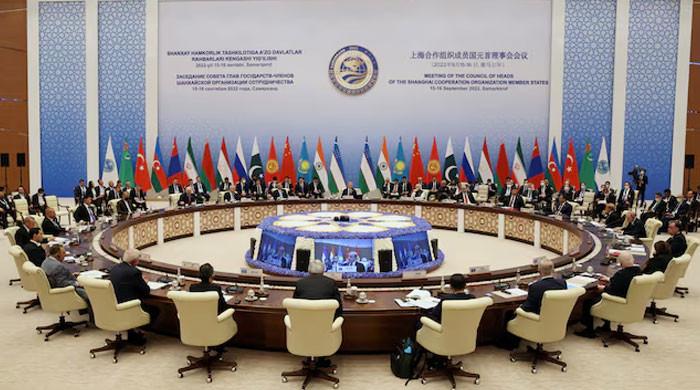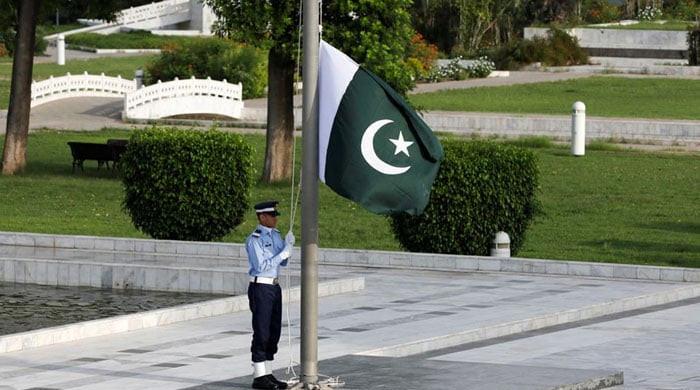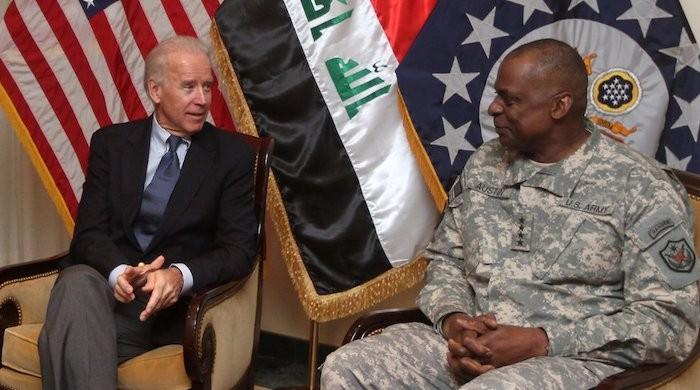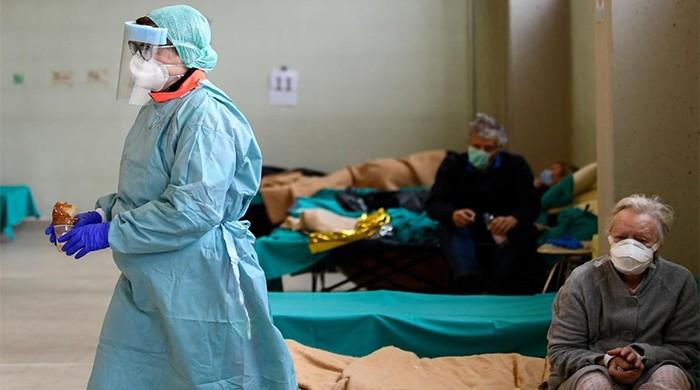How will Doha talks with Taliban impact Afghanistan's future?
How will Doha talks with Taliban impact Afghanistan's future considering that the venue is neutral and talks being held on the group's terms?
July 07, 2019
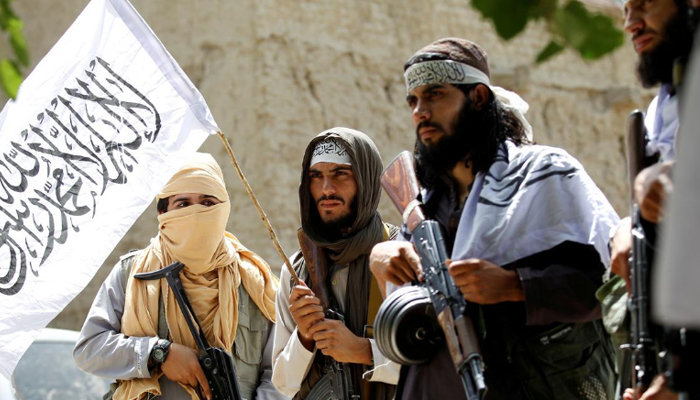
The world awaits one of the biggest developments of Afghanistan’s future as the stakeholders meet in Doha. Starting today, the two-day talks are a result of a relentless year-long effort of the United States, Germany, and Qatar.
Doha, the venue, is neutral for both the Taliban and Kabul. It has the advantage of having close relations with the group while Germany is active in Afghan diplomacy since the 2001 Bonn conference. Plus, the talks are being held on the Taliban’s terms.
Yet, it is ceremonial that the Afghan officials will meet in their personal capacity as they have not resigned from their current posts.
Now, till Monday, the rivals will discuss ways to bring down the violence and form a future government. It will be a breakthrough if the warring parties agree to hold thrice-postponed elections — now set for the September 28.
Strangely, however, the talks between the Afghan rivals are starting before the Taliban have formally concluded a written agreement with the US. Still, both parties have admitted spectacular progress in their negotiations that entered the second week on Saturday.
As the talks progressed, violence also reached a new peak in Afghanistan. A Taliban car bomb killed at least 14 and wounded 180 people, including 60 children. This tactic to get an upper hand by proving the mettle has worked more for the group than the US.
Since the talks resumed in Qatar earlier, the Taliban have killed more than 200 pro-government officials across the country. And, with an ever-emboldened moral, the militants have endured even more loss of lives.
Not only the aforementioned surge of violence but a number of significant developments also took place during the talks while some preceded them. US State Secretary Mike Pompeo visited Kabul and convinced President Ashraf Ghani’s government to soften their stance.
Little doubt though that Kabul remains sceptical about Washington’s intentions for an inclusive government. But it has at least agreed to send a significantly smaller delegation that constitutes officials, politicians, and other key stakeholders. Seems like they have realized that sending a wedding party would not work, similar to how it didn’t back in April.
What actually, however, complemented the talks was US President Donald Trump’s decision to slash the number of troops in Afghanistan. The American head-of-state initially announced the reduction of a thousand personnel but disclosed later that the current contingent only constituted 7,000 troops. This step, in fact, indicated real seriousness from a man once labelled by the Taliban as a non-serious presidential candidate.
The outspoken Trump also clearly admitted that the withdrawal did not translate to zero presence of the US in Afghanistan; he admitted that Washington would keep the significant number of personnel in Kabul.
By calling the country a ‘Harvard for terrorists’, Trump basically tried to shield the US presence in the name of intelligence officials. But his announcement offered a sigh of relief to Kabul, which fears that the history may repeat itself with more violence if the US completely pull out just like the Soviets did.
Even before Trump unveiled his latest cards, the world knew that the Americans were there to stay. Only a few months ago, even the Taliban had apparently agreed to tolerate small US presence.
While it’s yet to be declared how many troops, intelligence officials, and advisors will stay back, expectations remain that after a final agreement is signed and implemented, the current number will be reduced to half.
The agreement being redrafted at present is another feather in the cap of Zalmay Khalilzad, US special envoy for peace in Afghanistan, whose strenuous efforts have pulled out the path to peace from being shrouded in uncertainty earlier. The failure of Doha talks would have more detrimental effects for the US representative than for the Taliban.
The Taliban had previously signalled that if the talks failed, they would not bargain peace with an unelected representative. The envoy had himself admitted that there were things beyond his limited authority.
Good though that he obtained the reinforcements from the State Department as well as the White House. If all goes well in Doha, this development, too, has the potential to pave way for Trump’s second bid in the office.
Earlier attempts to bringing the Taliban to the table with the Afghan government had flatly failed. Doha couldn’t host such talks in April as the US had not fulfilled the promises and officials in Kabul failed to show seriousness on their part.
Before the third attempt to bring the warring factions together, Pakistan had also hosted the parties in Murree and similar moot was arranged in China, Islamabad’s ally with an ever-growing friendship. But the Murree talks were torpedoed as information about it happening was leaked. If anything could add fuel to the fire, it was the sudden disclosure of Mullah Omar’s death.
In the current round of talks, the Taliban have nothing to lose; they have been long pursuing a parallel regional approach. Interestingly, they even preferred Beijing over Oslo recently to discuss peace.
There are solid reasons for the Taliban’s approach.
Over the past few years, they are being better assisted by the regional powers and that has emboldened them to demand a proper withdrawal, fair share in power, and rebuilding their country devastated by almost two decades of war.
The Taliban are also convinced that once they are in power, they can overrun the entirety of Afghanistan. By facilitating them, on the other hand, the regional players are securing themselves from threats in the future.
Moscow compares Daesh to the global mercenaries who once descended in Kabul in the name of the Mujahedeen.
Beijing also perceives Daesh-K at its doorstep or in the border regions of the ex-Soviet republics as a real threat. Hundreds of Uighurs who fought in Syria have returned and settled in the border province of Badakhshan. Many others are seeking bases in nearby states.
In this scenario, the Taliban are a true asset against Daesh for both countries.
The militants not only have the will but the means as well to stop Daesh’s infiltration in Xinjiang — once allegedly a hotbed for separatists. The movement can also secure extended routes of the China-Pakistan Economic Corridor (CPEC) for Beijing and the upheaval in ex-Soviet states. Therefore, by redoubling their efforts, Russia and China seek to gel the Taliban with the opposition forces.
For the US, on the other hand, this disjointed effort of facilitating the Taliban is making it difficult to dictate the terms. Yet, the responsibility of the situation at the moment falls squarely on Washington, which simply failed to realise that the time was running out.
Meanwhile, the regional players started extending arms to the Taliban with a new blame game about who sponsors Daesh.
As a matter of fact, Daesh poses an equal threat to the US. Whatever accusations are made against America, there is no denying that it killed Daesh-K’s founding emir and his three successors.
So, what type of outcome should one expect from the Doha talks in this scenario? Can they be fruitful?
The answer is yes — but for a limited time. Even that would be possible after a few more rounds of talks.
The long-lasting solution is an exit strategy that addresses the regional powers’ reservations yet there is no sign that such an approach is being adopted to secure future generations from bloodshed.
For years to come, however, this is enough to jolt the foundation of peace in Afghanistan.




